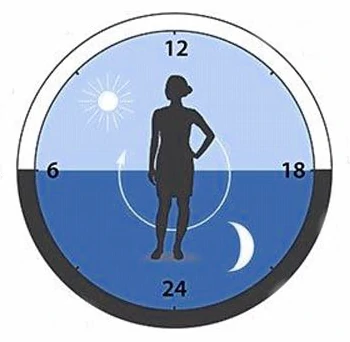In today’s digital age, our exposure to blue light has significantly increased. From our smartphones and tablets to our computers and televisions, blue light surrounds us. But have you ever wondered how this blue light affects our sleep? In this blog post, we will explore the impact of blue light on sleep and provide tips for reducing its effects.

Introduction
Blue light is a high-energy visible light found in natural sunlight as well as in artificial sources such as electronic devices and LED lights. It has a short wavelength and emits a higher amount of energy compared to other colors in the light spectrum. Our modern lifestyle has led to increased exposure to blue light. Especially during the evening hours when our bodies are preparing for the night. The problem is felt more in those people who are suffering from some form of digital addiction.
How Blue Light Affects Circadian Rhythms
Our bodies have an internal clock known as the circadian rhythm, which regulates our sleep-wake cycle. Exposure to blue light in the evening can disrupt this rhythm. This exposure suppresses the production of melatonin, a hormone that helps regulate sleep. As a result, our bodies may struggle to recognize when it’s time to sleep, leading to difficulties falling asleep and maintaining quality sleep.

Impact of Blue Light on Sleep Quality
The effects of this light on life quality are significant. Studies have shown that exposure to blue light before bedtime can increase sleep latency, making it harder to fall asleep. It can also reduce the duration of our sleep, leading to sleep deprivation. Additionally, blue light exposure has been associated with a decrease in REM (Rapid Eye Movement) sleep, which is crucial for memory consolidation and overall sleep quality.
Tips to Reduce Blue Light Exposure Before Bedtime
While it may be challenging to completely avoid blue light exposure, there are steps you can take to minimize its impact on your sleep:
- Limit screen time before sleep: Avoid using electronic devices such as smartphones, tablets, or laptops at least one hour before bedtime.
- Use blue light filters and apps: Many devices and operating systems offer built-in blue light filters or apps that reduce the emission of blue light. Enable these features in the evening to reduce your exposure.
- Adjust lighting and environment: Use dimmer lights in your bedroom and consider using warm-colored bulbs. This create a more sleep-friendly environment.
- Consider blue light glasses: Blue light blocking glasses are specially designed to block or filter out blue light. They can be worn throughout the day, especially in the evening when blue light exposure is highest.
Conclusion
Managing blue light exposure is essential for maintaining healthy sleep patterns. By understanding the impact of this light on our sleep and implementing strategies to reduce our exposure, we can improve our sleep quality and overall well-being.
Take a step towards better sleep and explore the options available to you.
Remember, your sleep is precious, and by taking proactive measures to manage blue light exposure, you can enjoy nights of restful sleep and wake up feeling refreshed and energized.
References
[…] Blue glasses have gained popularity for their ability to reduce eye strain caused by blue light. By filtering out the harmful wavelengths, these glasses can alleviate discomfort and protect the eyes from potential damage. Additionally, wearing blue glasses before bed can help regulate sleep patterns by blocking blue light that disrupts the production of melatonin, a hormone responsible for promoting restful sleep. […]